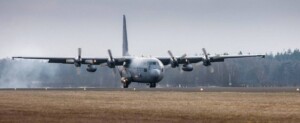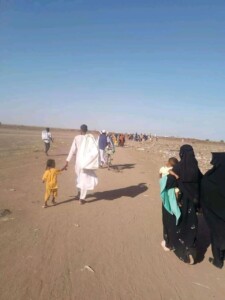Sudanese refugees in Chad demand voice at Juba peace talks
Sudanese refugees in eastern Chad have reiterated their demand to participate in the ongoing peace talks in Juba. The head of the Sudan Revolutionary Front (SRF) rebel alliance attributed their delay of participation to logistical and administrative issues.
 Darfuri children in Touloum refugee camp in eastern Chad (file photo)
Darfuri children in Touloum refugee camp in eastern Chad (file photo)
Sudanese refugees in eastern Chad have reiterated their demand to participate in the ongoing peace talks in Juba. The head of the Sudan Revolutionary Front (SRF) rebel alliance attributed their delay of participation to logistical and administrative issues.
On Friday, Sheikh Mohamed Dafallah of the Treguine refugee camp in eastern Chad told Radio Dabanga that the Sudanese refugees who have sought asylum in Chad since the war erupted in Darfur are not represented in the ongoing negotiations in Juba.
“Our exclusion from the peace talks means a denial of our rights to express our opinion on the issues on the table, and this won’t help in achieving a just peace in Darfur,” he said.
He emphasised that reaching a comprehensive peace requires the participation of all parties including the government, armed movements, and stakeholders among refugees and displaced people.
On Friday, El Hadi Idris, the head of the SRF, told Radio Dabanga that the absence of the refugees’’ delegation in current ongoing peace negotiations in Juba is because of administrative and logistical reasons. “Also, the refugees insisted on a minimum of 40 representatives, while the joint committee decided on 20 representatives from refugees,” he explained.
El Hadi indicated that Chairman of the Higher Council for Peace Dr Suleiman El Debello is currently communicating with the Chadian authorities and other parties to facilitate the travel of the refugee delegation from Chad to Juba. He added that Unamid has pledged to accommodate and support the delegation in Juba. He said that the refugee’s’ paper and their demands are still open for discussion.
Earlier this month, a delegation of 100 people from Darfur travelled to Juba to present their vision on peace issues in Darfur, related to the return of displaced people to their area of origin, issues of land ownership and hawakeer (lands traditionally used by tribal communities), transitional justice, and security issues.
50 members of the delegation represent the displaced in Darfur. The 50 others are native administration leaders, professionals, farmers, and herders.
At the end of his visit to the Sudanese refugee camps in eastern Chad Minni Minawi, head of a Sudan Liberation Movement split-off faction, called for more aid to the refugees in Chad, especially children and women, because of their deteriorating health conditions. At a press conference in El Tina in eastern Chad he demanded that the Sudanese government play its role towards the refugees as Sudanese citizens.
Radio Dabanga’s editorial independence means that we can continue to provide factual updates about political developments to Sudanese and international actors, educate people about how to avoid outbreaks of infectious diseases, and provide a window to the world for those in all corners of Sudan. Support Radio Dabanga for as little as €2.50, the equivalent of a cup of coffee.












 and then
and then